
20 Jun, 2022
How the new Thai privacy protection law will hurt tourism marketing, networking and MICE events
Phuket – The Thailand Travel Mart Plus held in Phuket between 8-10 June 2022 was the first local travel trade show since the enforcement of the Personal Data Protection Act. That led to some immediate and multiple changes in the way information about the participants was displayed. Whether the law did anything to protect anyone’s privacy remains unclear but it certainly diminished some of the commercial advantages of attending a travel trade show.
The most immediate and visible changes were the disappearance of the name on the delegate badge ……
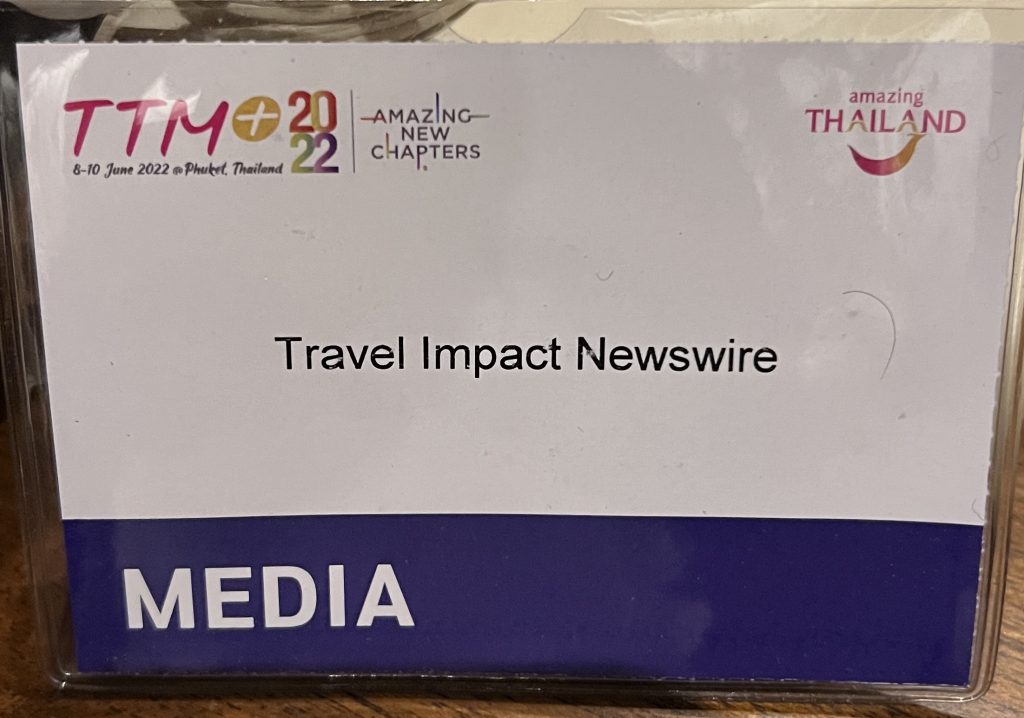
….. and the appearance of this notice outside the convention centre.
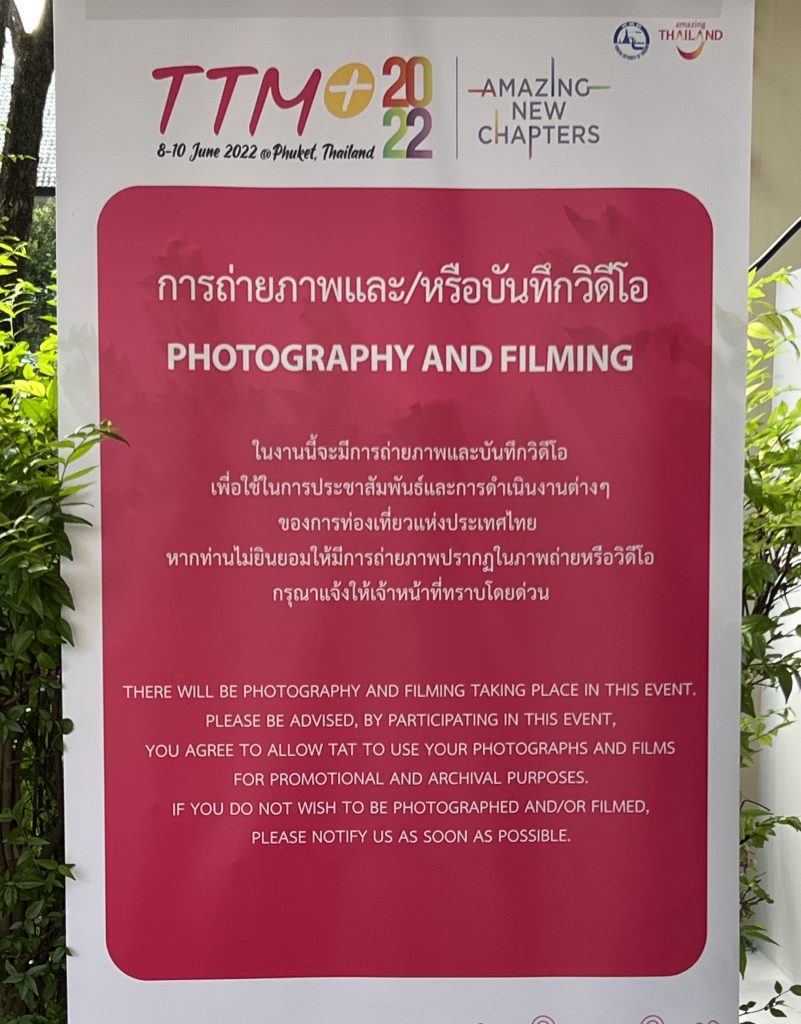
This meant delegates could no longer just spot a familiar name by glancing at the name-badge at a social networking event or passing each other in the corridors. As name cards are also on the way out, delegates had to use their phones to scan or photograph some form of ID. Effectively, they were doing the same as before – socialising and making contact. Just that the simple ways of the past are gone….
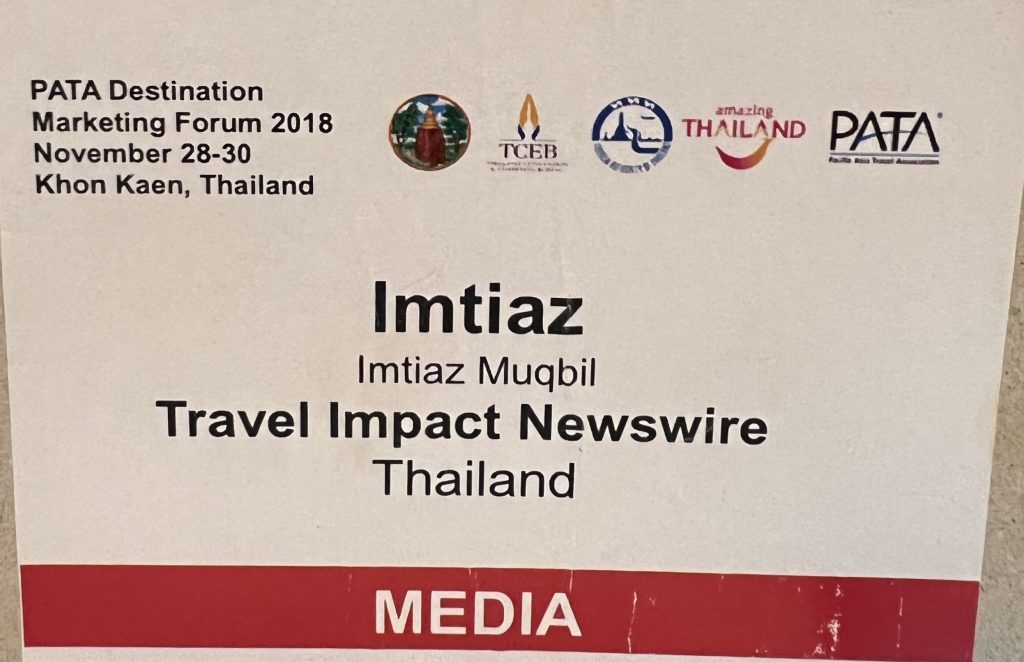
A privacy warning was included in the TTM 2022 briefing documents for both buyers and sellers. This was a non-starter. A number of delegates basically just shrugged it off. Photography is a matter of course in such events.
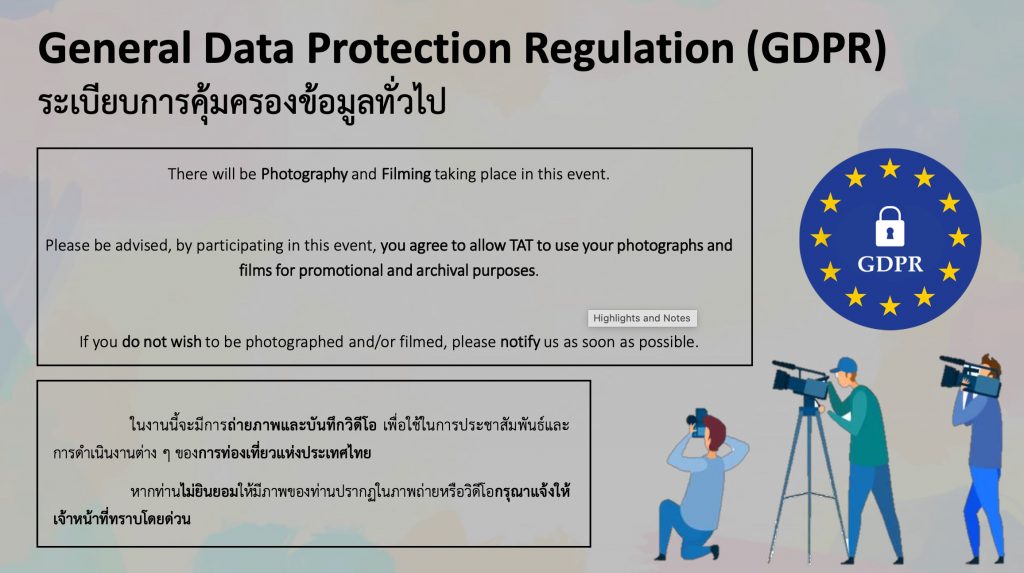
The real hindrance is in the realm of communications and media relations. Media centres once used to be central distribution points for private sector press kits, which provided valuable information about new products and promotions, along with names of PR directors who could be contacted for more info. No more. There is no way of quantifying the serious loss of potential free publicity for both the exhibitors and the destination.
Even worse, the buyers and sellers directories are gone. Citing the PDPA, the Tourism Authority of Thailand declined to share them. After a moment of disbelief, and some vigorous complaining, I was provided with a buyers list, containing only company names and countries, and a sellers list with only the company names and a map showing the company’s location on the trade floor.
Nothing else. No websites. Name of the delegate. Not even a generic contact detail. See for yourself…
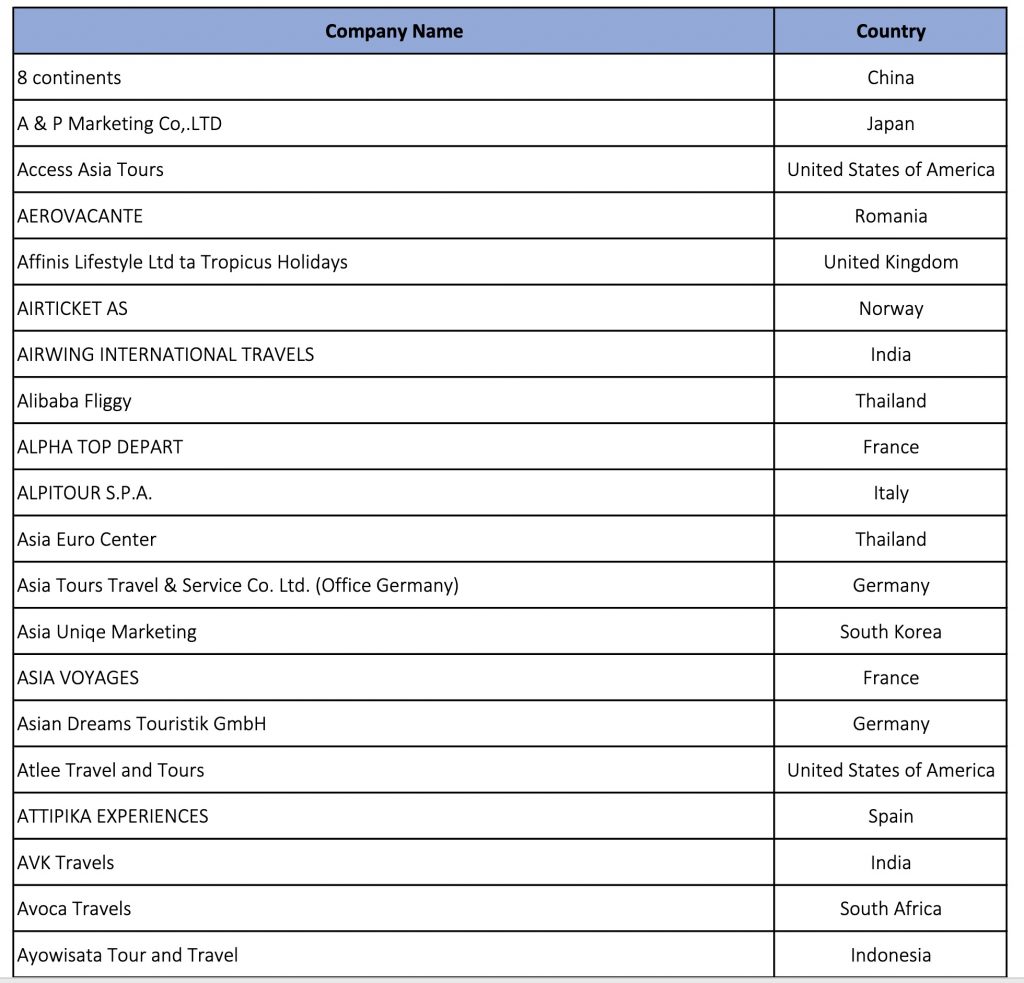
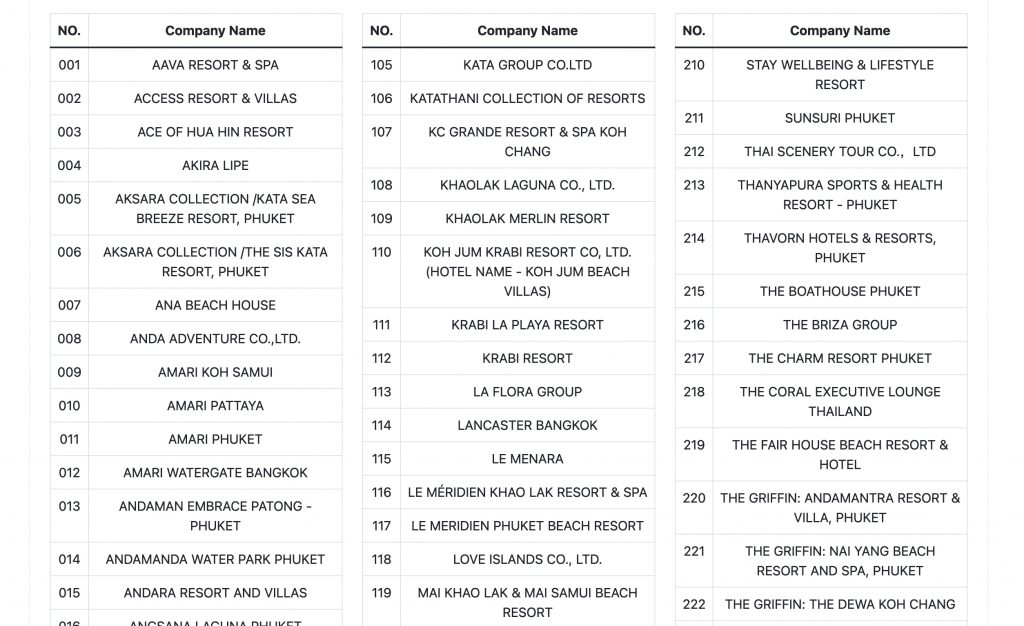
The TAT staffer who tried to explain the restriction repeatedly sought my “understanding”. I told her it was more important for the TAT to understand that both buyers and the tax-paying Thai sellers, mostly small and medium sized enterprises, have for years used these domestic shows to market themselves at far less cost than going abroad. They also welcome legitimate media inquiries. To say that is now illegal does not make commercial sense.
I then contacted my lawyer to clarify. He said the PDPA did not apply to the media and referred me to the specific clause. I sent that to the TAT. It made no difference.
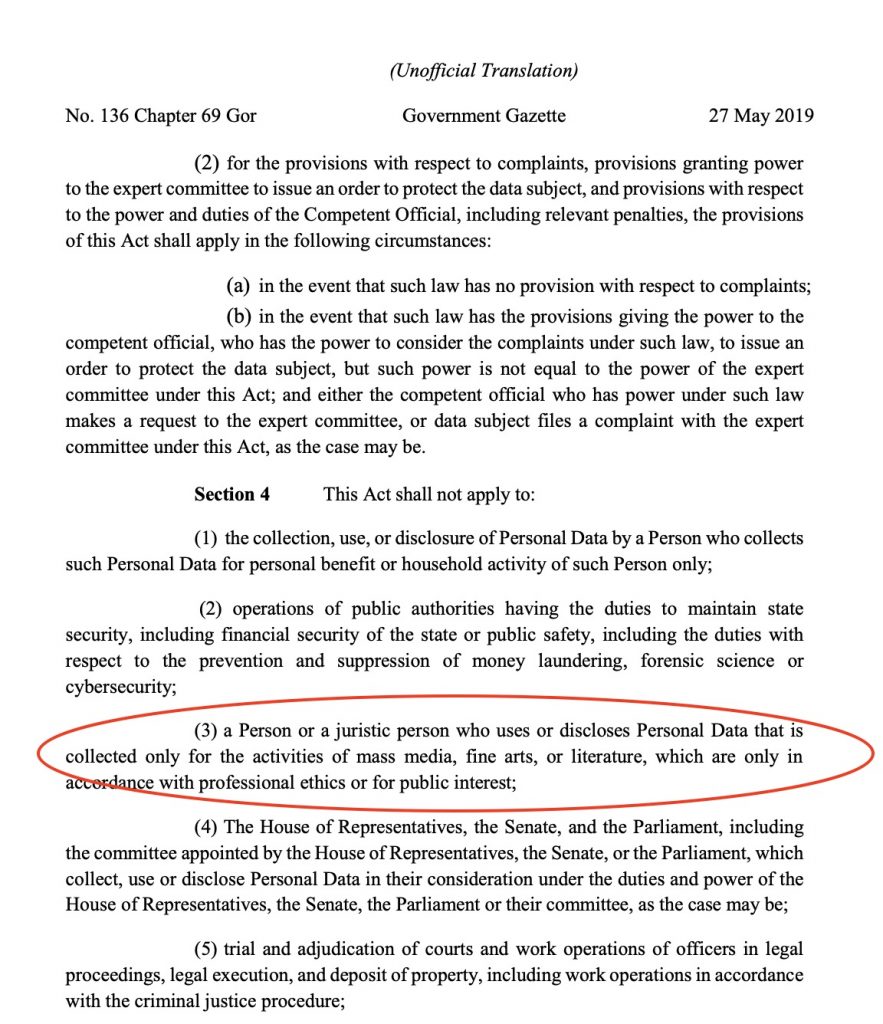
In the old days, the buyers and sellers directories were like these, packed with valuable information and advertising…..
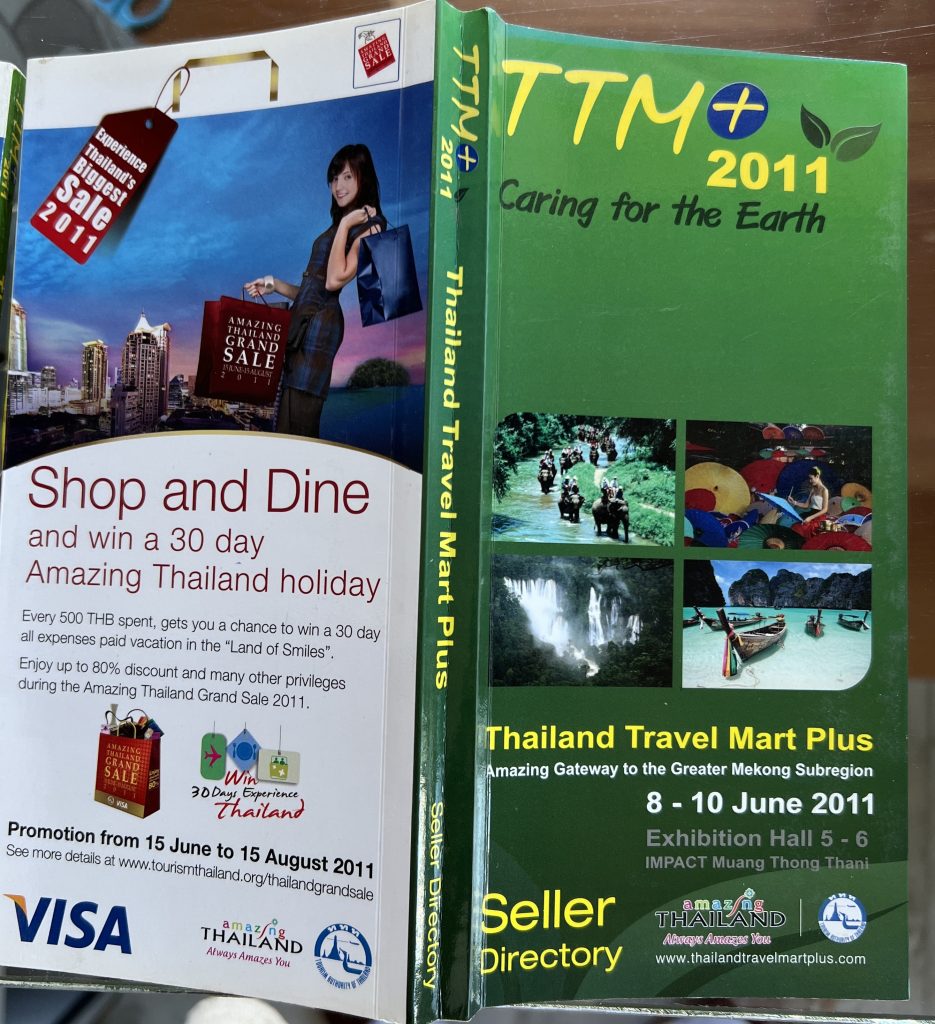
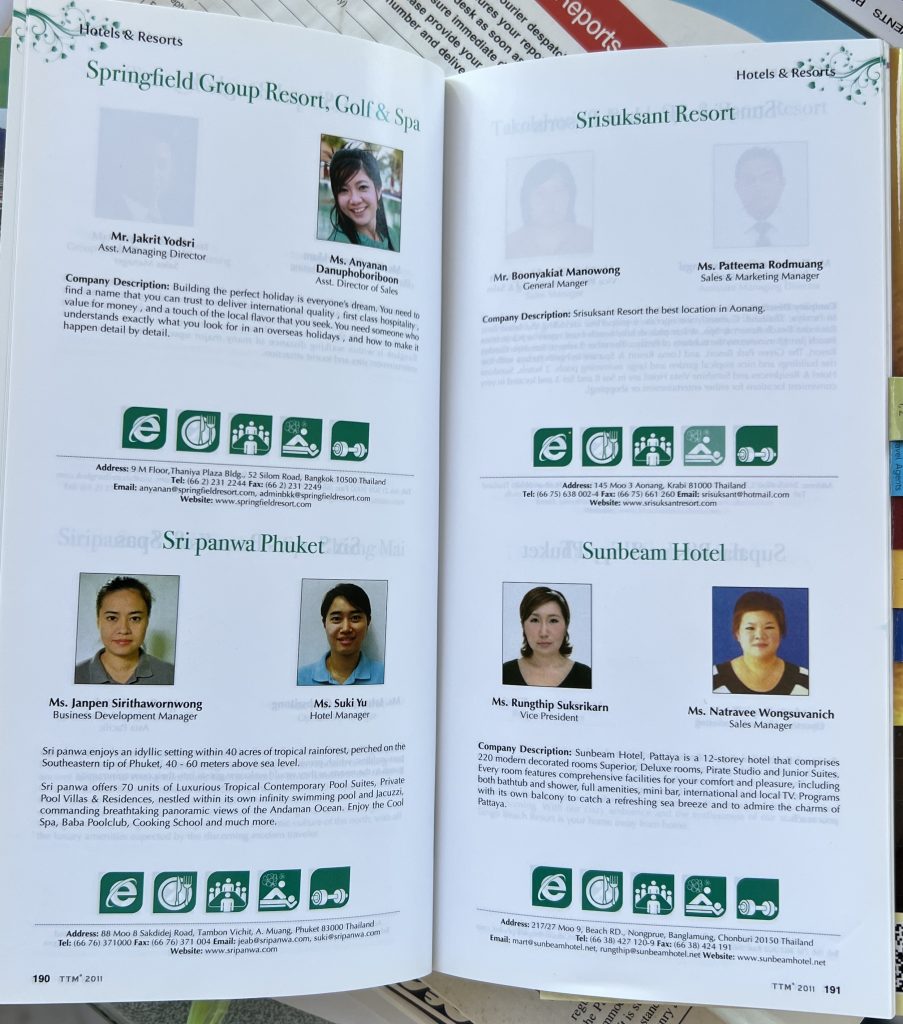
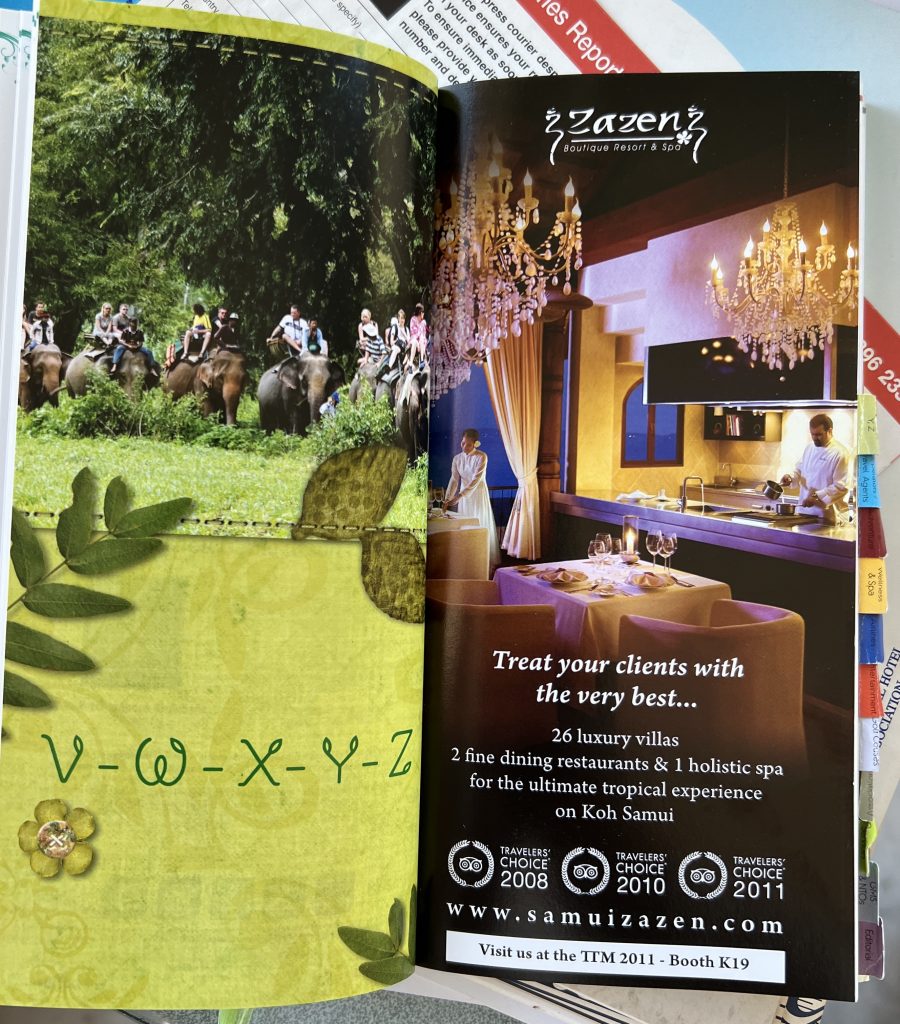
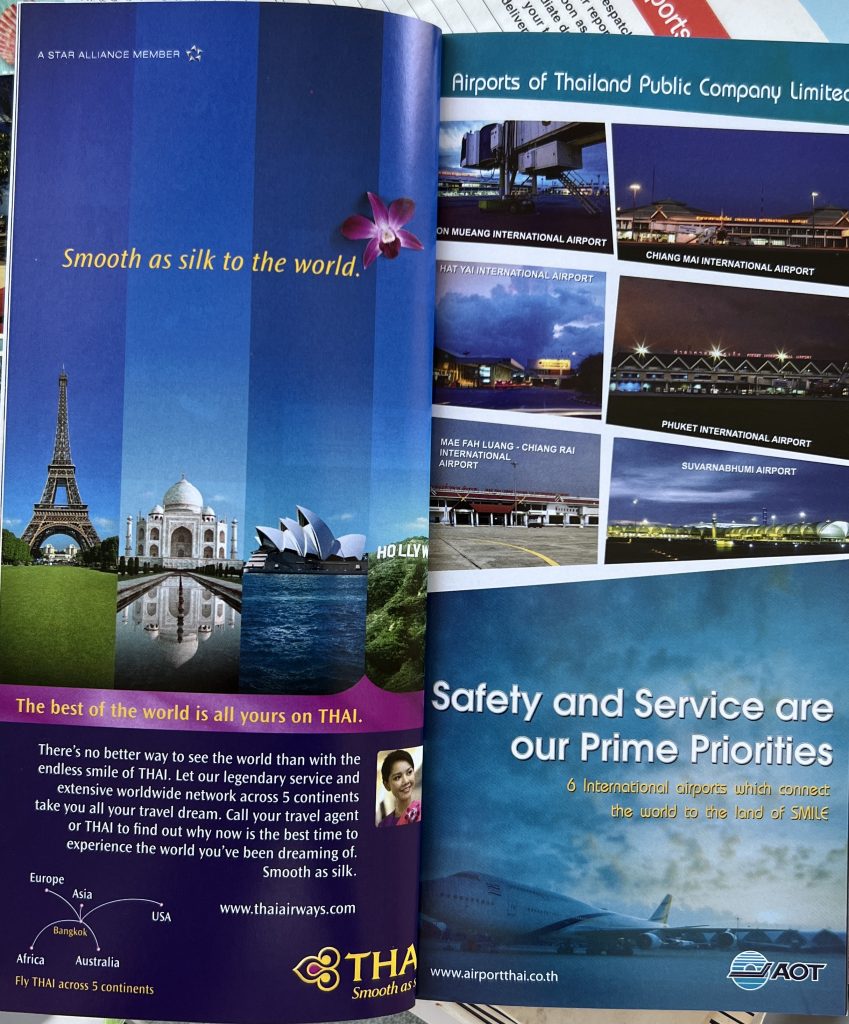
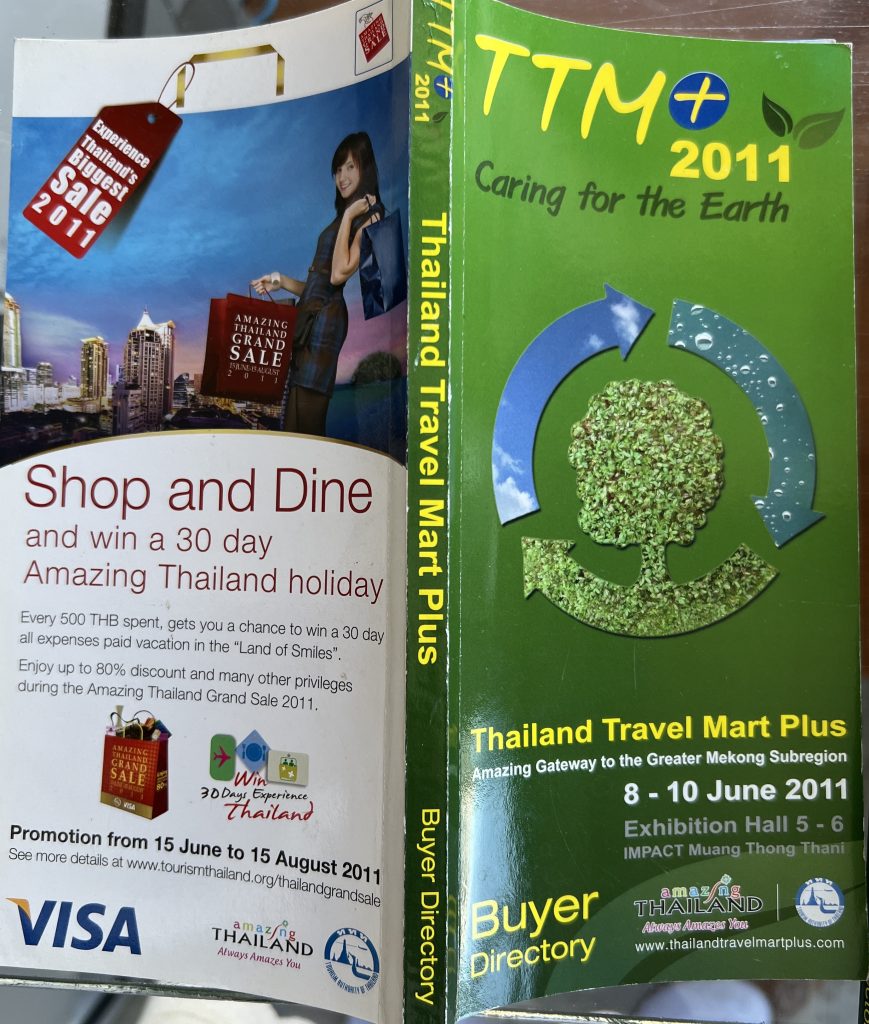
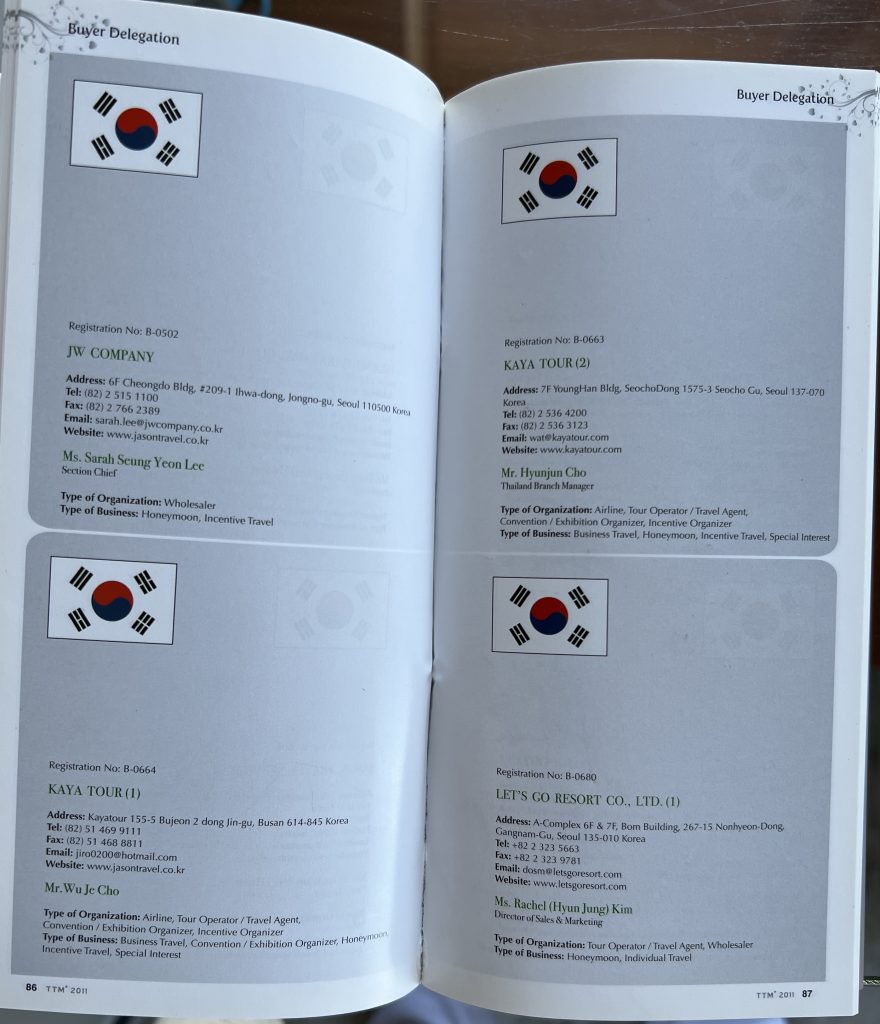
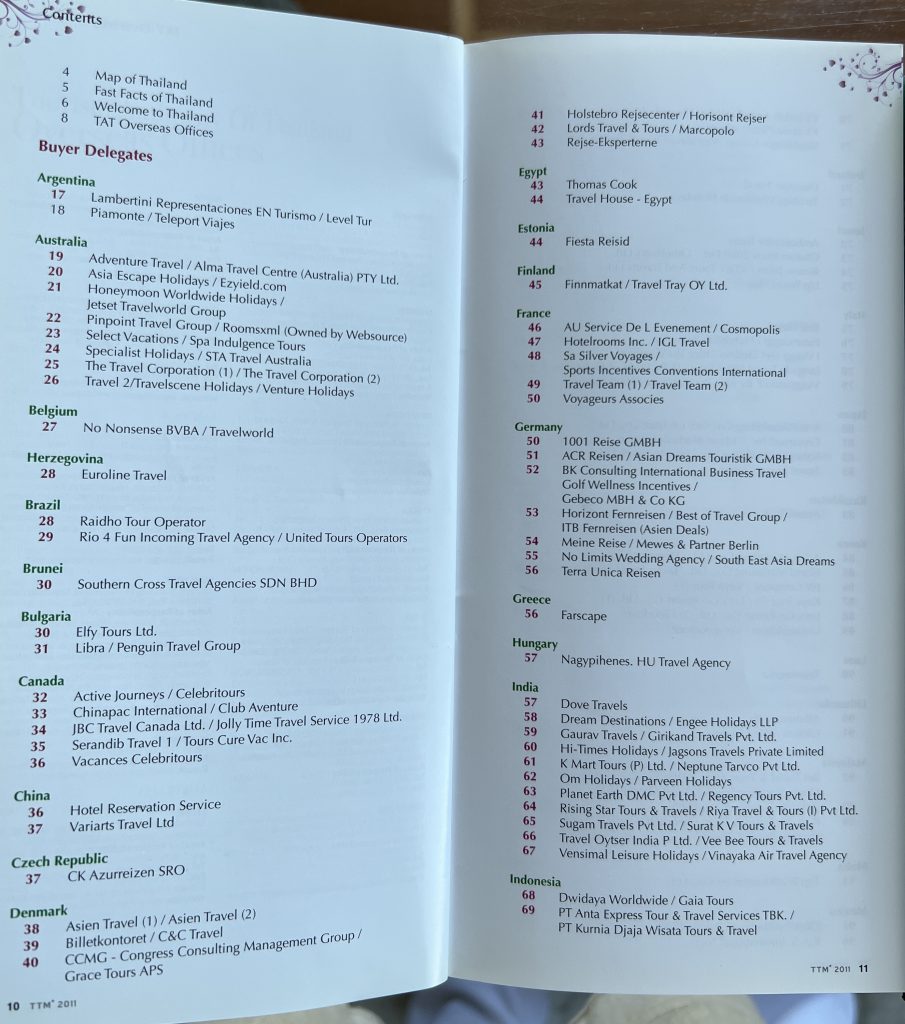
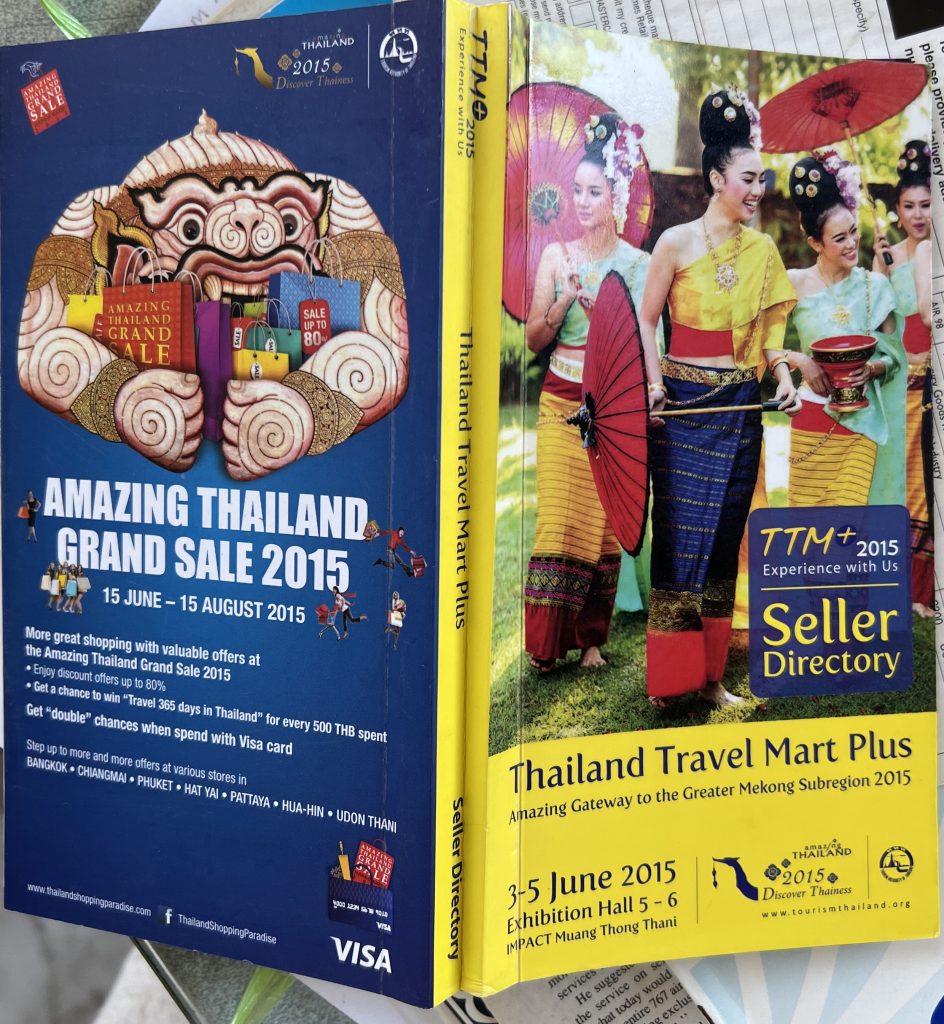
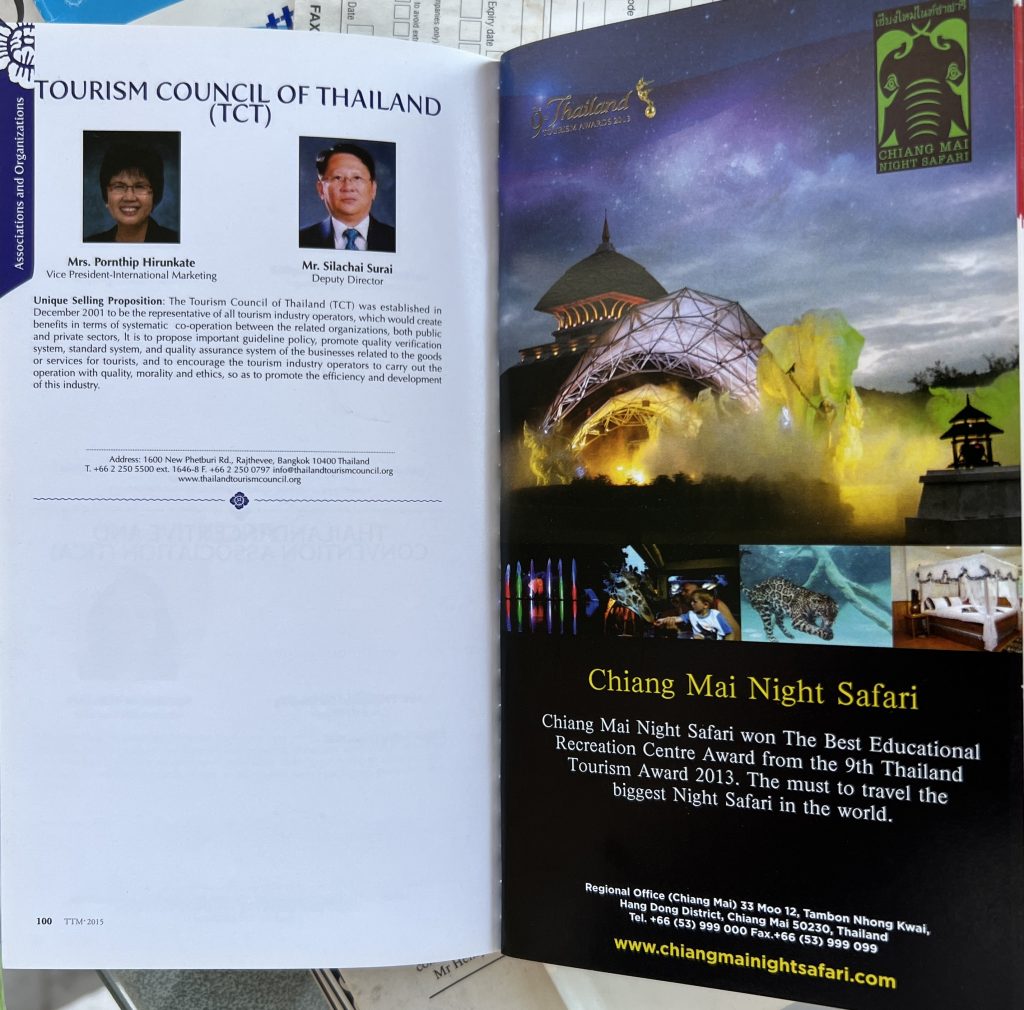
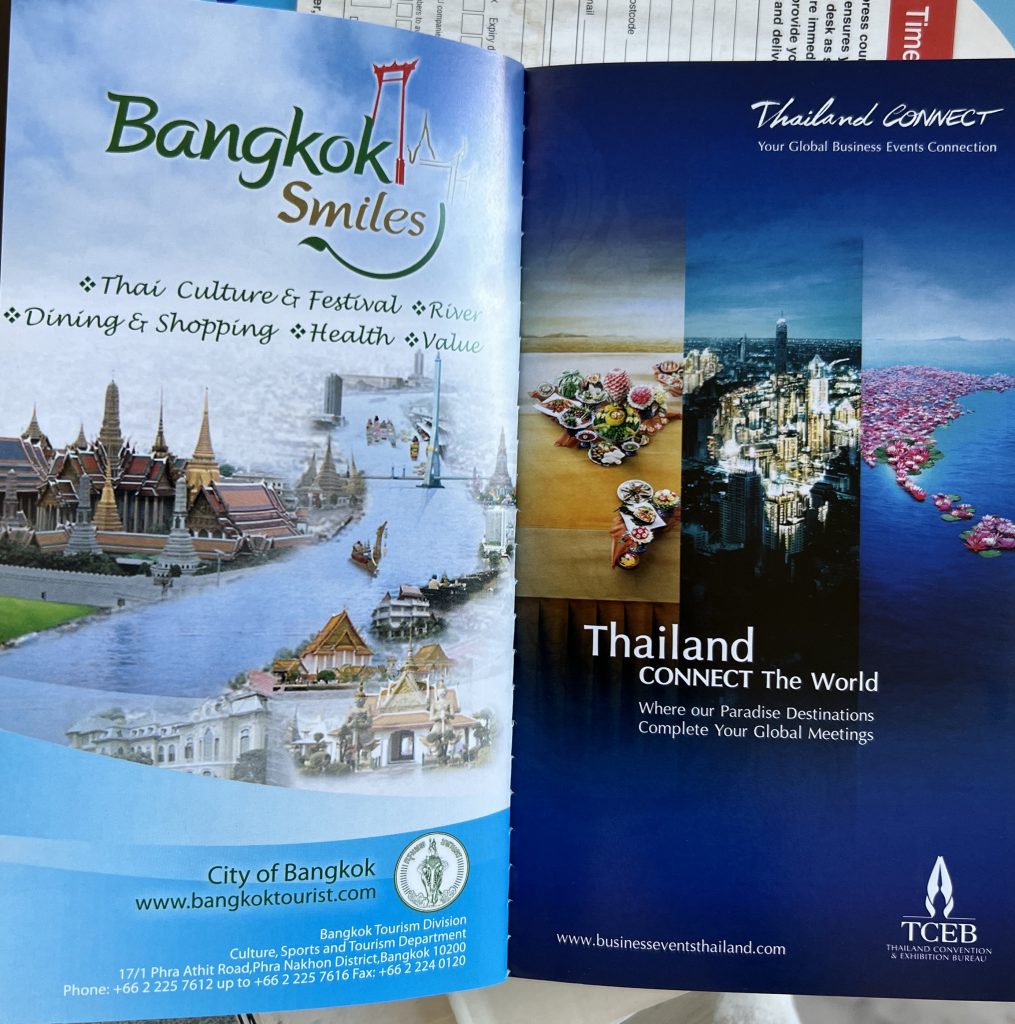
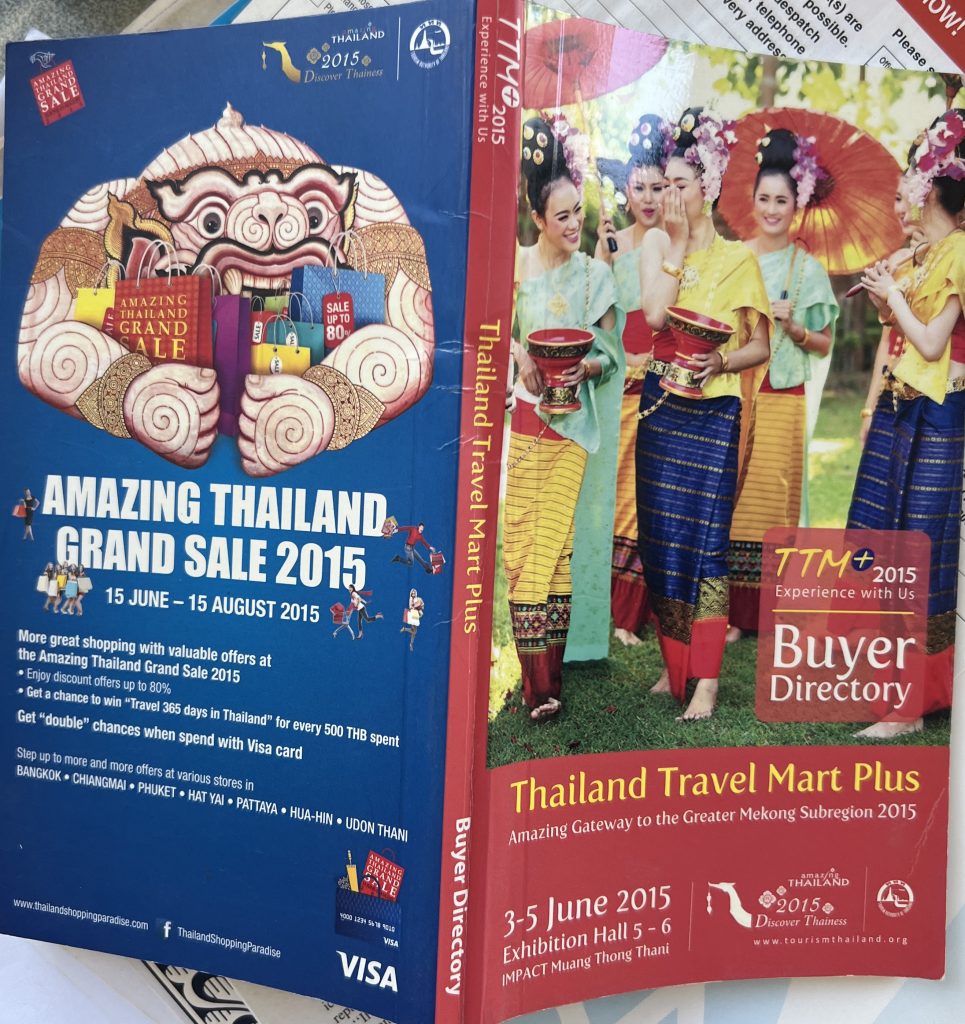
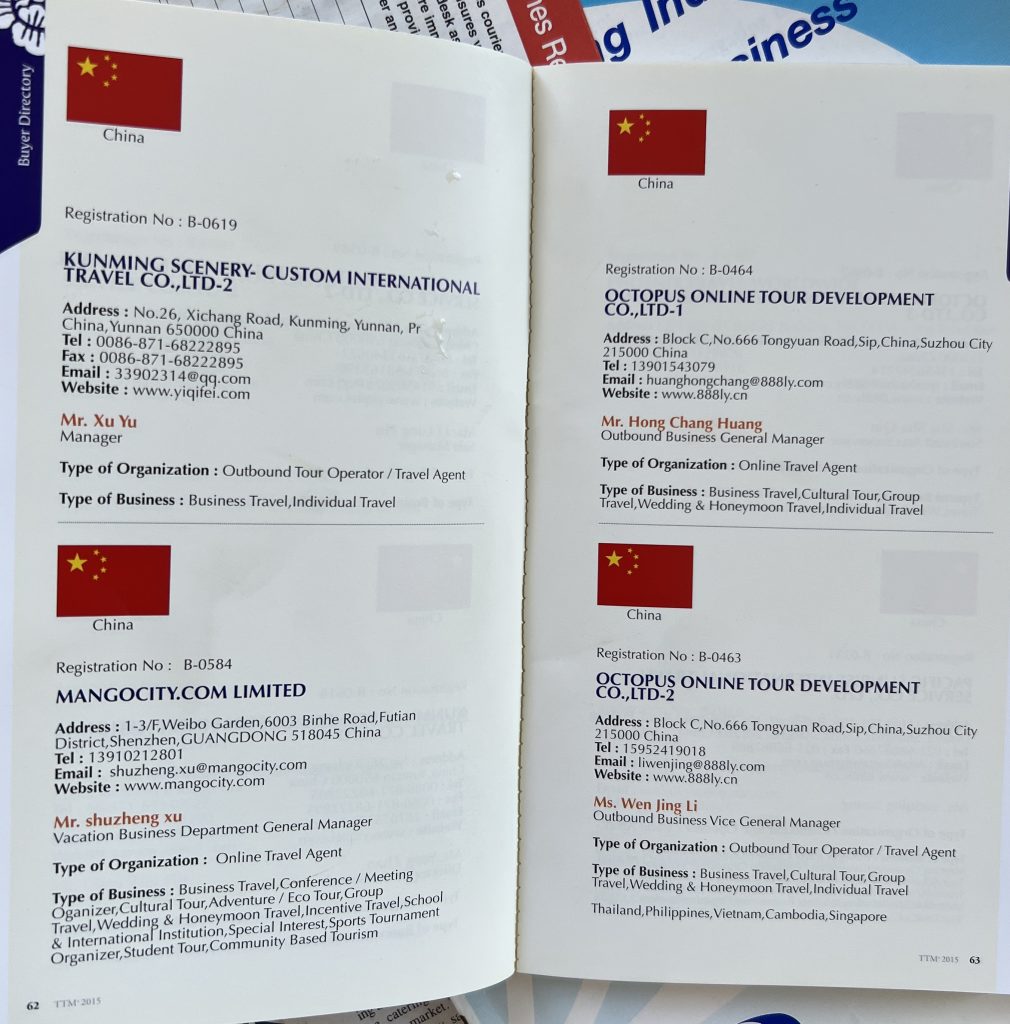
How badly did the PDPA affect the value of my participation? Very badly indeed.
Trade shows are all about networking, marketing and communicating. Serious journalists access information from two sources. The macro, big-picture policy and strategic perspectives come from the press conferences and media briefings. The micro product updates and market trends come from the buyers and sellers. Buyers provide valuable intelligence on their respective markets. Sellers push their products, promotions and marketing. Talking to people at the networking social functions then helps connect all the dots.
In the case of the TTM 2022, only two days were allocated for the media to cover the trade show. On the third day, they had to either return home or depart for the tours. Of the two days, much time was taken up by the TAT’s media conferences, leaving little time to talk to buyers and sellers. That made it even more important to get the directories of buyers and sellers.
As the tax-paying sellers are also paying for their participation, media coverage opportunities add value to their investment. When buyers/sellers could not be reached due to time constraints, the buyers/sellers directories allowed follow up later via one of the listed contact details. I have never, ever, had anyone object to a legitimate business and/or journalistic inquiry.
It works both ways. Making the media list available to buyers and sellers allows them, too, to contact journalists. PR executives also use the media lists to update their existing databases and/or make new contacts.
One of the most important stories which could not be chased at the TTM2022 was the large presence of first-time buyers and sellers. The TAT was proud of the high percentage of first-time participants, clearly indicated in the image below. Only problem was, I had no idea who they were.
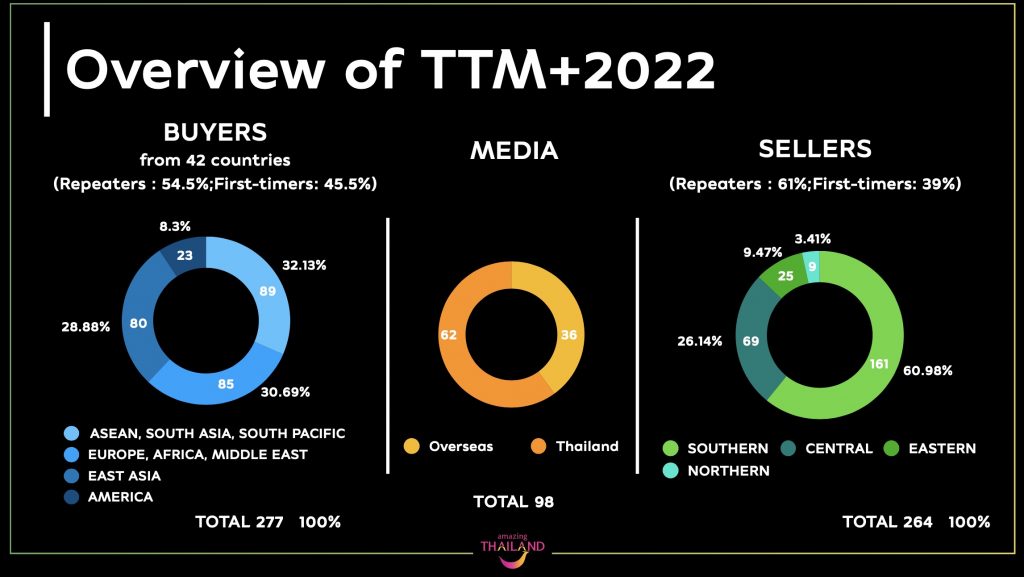
Another important story that surprisingly was totally off the radar was the presence of 23 travel agents from Saudi Arabia, the first such presence in 32 years. It was a great story by any standards. But not a single Saudi buyer was on the list. When I asked TAT why not, I was told they were not “hosted buyers” but “hosted trade visitors”. When I asked what was the difference, I did not get a reply.
By and large, however, the pluses of the pre-PDPA information system outweighed the minuses, and certainly enhanced the value for time and money.
Yes, the pre-PDPA format did have its drawbacks. The information-rich directories were used by publishers and media marketing executives to solicit advertising. But no system is free from abuse. As this abuse became a nuisance in the early days of email communications, the level of contact information included in the directories began to drop.
Over the long term, however, it may not make much difference. The overall quality of travel journalism is declining rapidly thanks to the dumbing-down impact of social media. Many invited journalists are just looking for a free junket. They are more than happy to take a few photographs and reprint the press releases. I am proud to have been part of a fading generation of travel journalists who tried to inject more depth, analysis and critical thinking. Having proper access to sources of information once made that possible. The privacy restrictions are only accelerating the demise of those standards.
How all this impacts on trade shows in the hybrid era remains to be seen. In this case, the TAT was the organiser and could call the shots. But foreign companies/institutions organising events in Thailand may find the restrictions counter-productive. So will Thais participating in trade shows abroad.
Clearly some kind of balance will have to be found.



Liked this article? Share it!